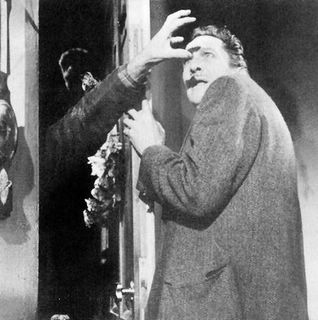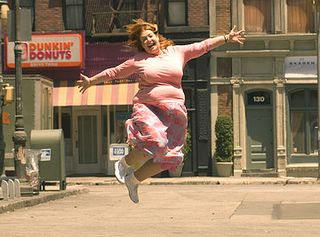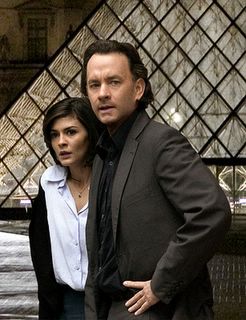The Incredibly Strange Creatures Who Stopped Living and Became Mormon Zombies
It's a madhouse! A madhouse!
Posthumous baptism is a sacred rite practiced in Mormon church temples for the purpose of offering membership in the church to the deceased. Church members are encouraged to conduct family genealogy research and forward their ancestors' names for proxy baptism.
Offering membership to the deceased. What, are you guys so hurting for new recruits? You've got to go after corpses? What I want to know is this...Let's say, some guy named Tom is dead. Tom died in, oh, I don't know, 2003. In a freak boating accident. He was going to donate his organs to science, but they were all ground up and spread around, and many of them were eaten by manatees before the Coast Guard could arrive.
Anyway, he's been dead since 2003. It's now 2006 and the Mormons offer his immortal soul membership in their fine organization. (Never mind how he's supposed to tithe, post-mortem. Hope you had some gold fillings, Tom!) Well, what's he been doing since he died? Burning in eternal hellfire? Do Mormons have access to condemned souls? If so, how did they manage that one? Did Brigham Youny defeat Satan in some sort of fiddle contest?
If you'd just let us in, we'd love to tell you all the Good News about our Prophet Joseph Smith and his Holy Book of Mormon...Then we'll eat your brain!
Here's where the story gets truly bizarre.
Church President Gordon B. Hinckley has said the baptismal rite is only an offer of membership that can be rejected in the afterlife by individuals. "So, there's no injury done to anybody," Hinckley told the AP in an interview last November.
Well, as long as there's no injury done to anybody, I guess it's no harm no...WAIT A MINUTE THAT'S COMPLETELY INSANE!
An offer of membership that can be rejected in the afterlife? How? Via seance? Do I really need to be dealing with customer service representatives after I die?
"One of the benefits of previous meetings is that we established an ongoing joint working group that would address what would appear to be any anomalies, or anything that appears to be slipping through our screening process," Otterson said. "That committee continues to meet and continues to be the best place for addressing these concerns."
All of these people are insane. The Mormons who insist on baptizing dead people whos efamileis don't want them to be baptized are completely insane, but the Jews who are so upset about the practice are pretty damn stupid and crazy too. Who cares if these Utah idiots want to use your dead relatives name in a kooky ceremony? They're dead! They don't give a shit. (Honestly, would they care even if they were alive?) If you want to say weird blessings and incantations in my memory after I'm dead, hey, knock yourself out, pal. Not gonna do you any good, certainly not gonna do me any good, cause I'm dead.
Do they think their relatives are going to get thrown out of Jew Heaven or something if they're zombie baptized? Frankly, I don't think this would be so bad, because I've heard about Jew Heaven and apparently it's not all it's cracked up to be. No good professional sports teams, and the whole place is overrun with endodontists and bad stand-up comics. (Although, if you like Chinese food...eh, you could do worse.)






